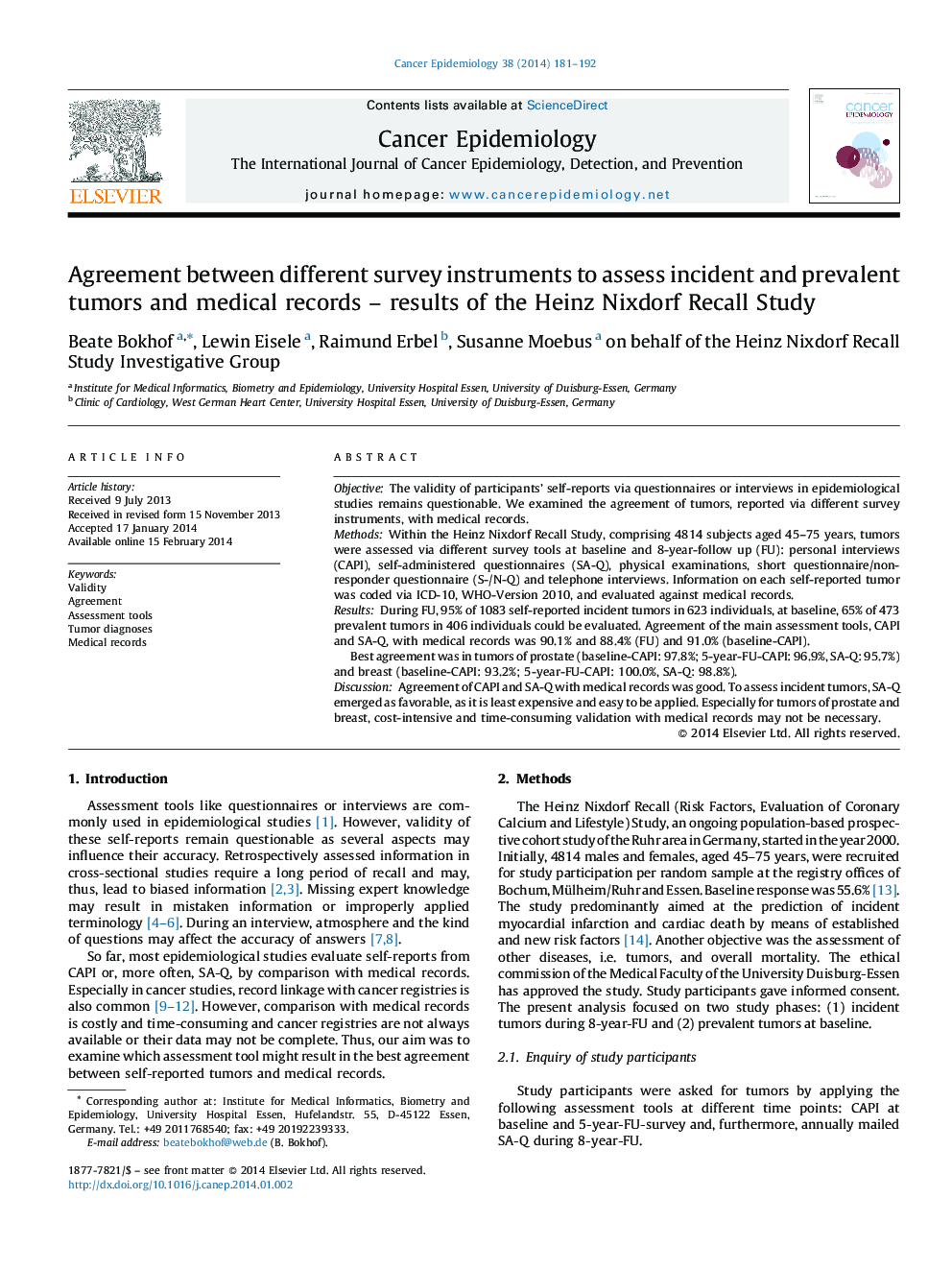| Article ID | Journal | Published Year | Pages | File Type |
|---|---|---|---|---|
| 2109523 | Cancer Epidemiology | 2014 | 12 Pages |
ObjectiveThe validity of participants’ self-reports via questionnaires or interviews in epidemiological studies remains questionable. We examined the agreement of tumors, reported via different survey instruments, with medical records.MethodsWithin the Heinz Nixdorf Recall Study, comprising 4814 subjects aged 45–75 years, tumors were assessed via different survey tools at baseline and 8-year-follow up (FU): personal interviews (CAPI), self-administered questionnaires (SA-Q), physical examinations, short questionnaire/non-responder questionnaire (S-/N-Q) and telephone interviews. Information on each self-reported tumor was coded via ICD-10, WHO-Version 2010, and evaluated against medical records.ResultsDuring FU, 95% of 1083 self-reported incident tumors in 623 individuals, at baseline, 65% of 473 prevalent tumors in 406 individuals could be evaluated. Agreement of the main assessment tools, CAPI and SA-Q, with medical records was 90.1% and 88.4% (FU) and 91.0% (baseline-CAPI).Best agreement was in tumors of prostate (baseline-CAPI: 97.8%; 5-year-FU-CAPI: 96.9%, SA-Q: 95.7%) and breast (baseline-CAPI: 93.2%; 5-year-FU-CAPI: 100.0%, SA-Q: 98.8%).DiscussionAgreement of CAPI and SA-Q with medical records was good. To assess incident tumors, SA-Q emerged as favorable, as it is least expensive and easy to be applied. Especially for tumors of prostate and breast, cost-intensive and time-consuming validation with medical records may not be necessary.
